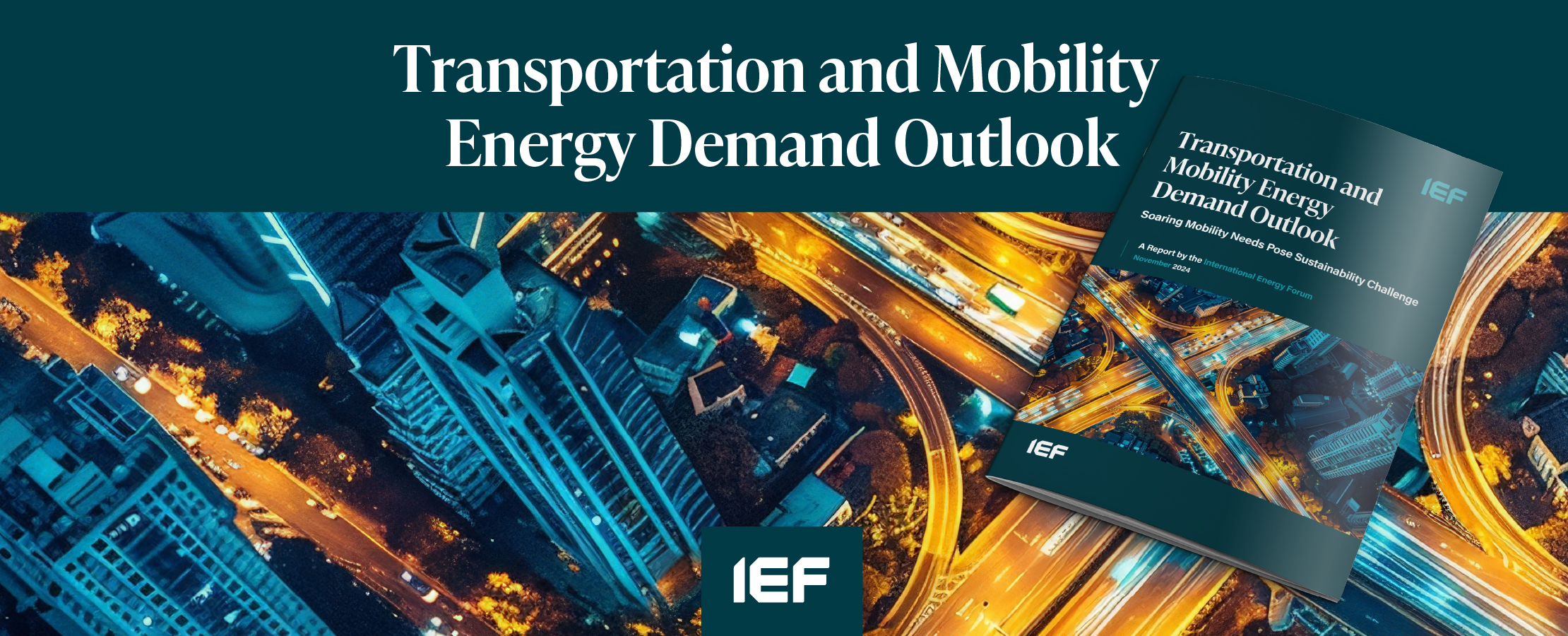Transportation and Mobility Energy Demand Outlook
Soaring Mobility Needs Pose Sustainability Challenge
A report by the International Energy Forum
November 2024
Introduction
Transportation and mobility demand is expected to grow significantly in the coming decades, driven by multiple factors, including population and economic growth, and urbanization. Transportation can be defined as a means of moving people and goods from one place to another using various modes i.e. cars, trains, planes and ships. In contrast, Mobility refers to the ability, affordability, and accessibility of people or goods to move freely across regions and countries using various transportation options.
The demographic shift in the coming decades necessitates enhanced infrastructure development to accommodate diverse transportation options and meet the growing demand for mobility. Urbanization will further amplify this need, as cities are expected to grow significantly in size, enhancing travel requirements between and within urban centers. Moreover, economic growth disparities across regions will influence transportation dynamics. The interplay between these factors highlights the importance of developing robust policies that not only address current demands but also anticipate future trends in a rapidly changing environment.
Beyond its essential role in facilitating the mobility of passengers and goods worldwide, transportation is also a crucial enabler for achieving the 2030 Sustainable Development Goals (SDG). Since the beginning of this decade, the industry has faced significant challenges, including one of its biggest crises during the COVID-19 pandemic, followed by conflicts that have affected aviation and energy supply. Passenger transport declined by more than half in 2020 due to the COVID-19 pandemic, while freight transportation remained relatively stable, ensuring the distribution of essential goods such as agricultural products, food, medical products, and equipment across the globe.
Transportation is among the largest consumers of oil worldwide, with more than half of global oil demand driven by this sector. Fuel consumption by commercial airlines has now surpassed pre-pandemic jet fuel consumption levels, highlighting the sector's resilience and gradual recovery from the unprecedented disruptions it has faced in recent years.
Key Figures
Figure 1 - Fuel Consumption of System-wide Global Commercial Airlines
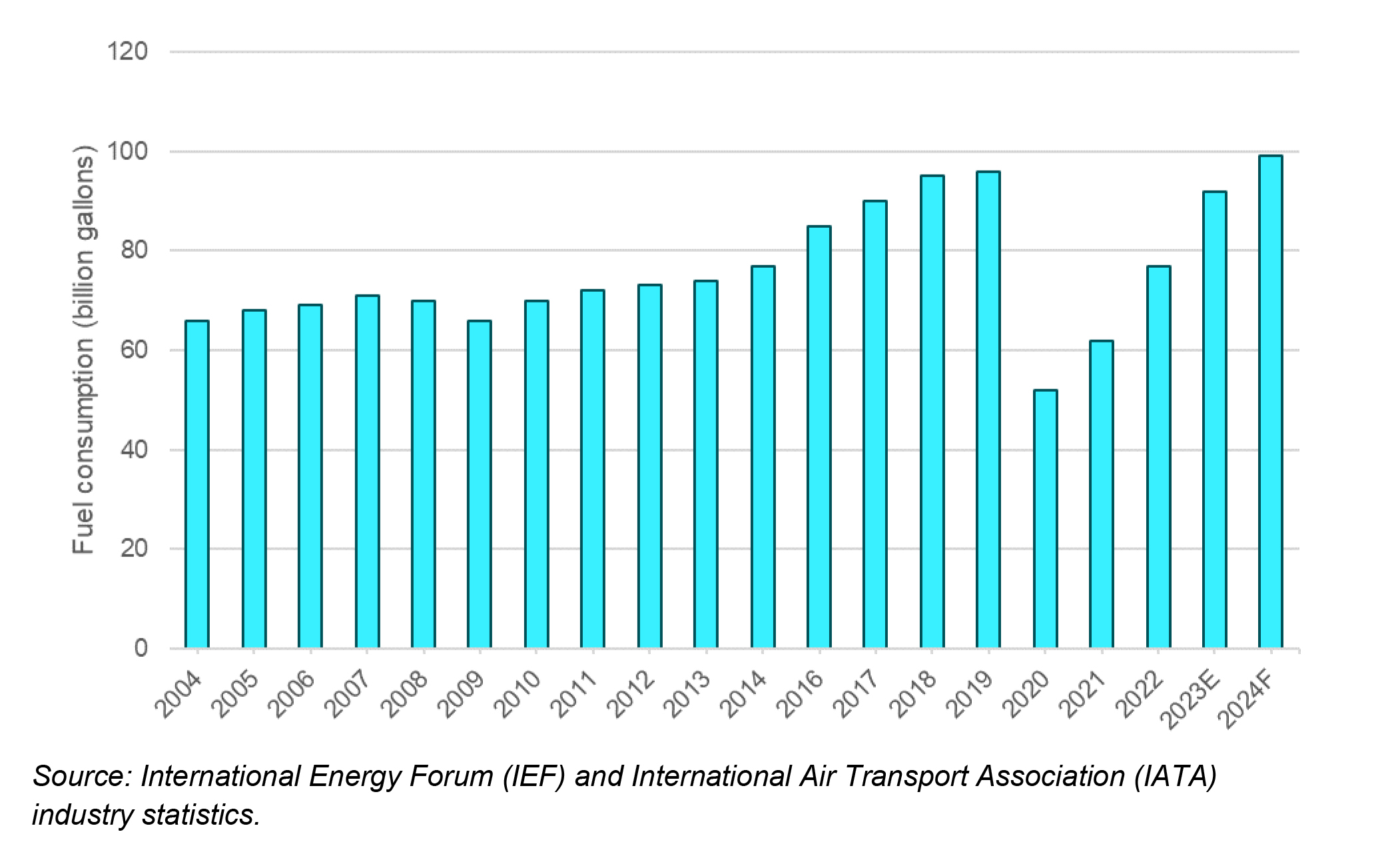 Download Figure 1
Download Figure 1 Figure 4 - Regional Economic Growth Compared to Global Trends
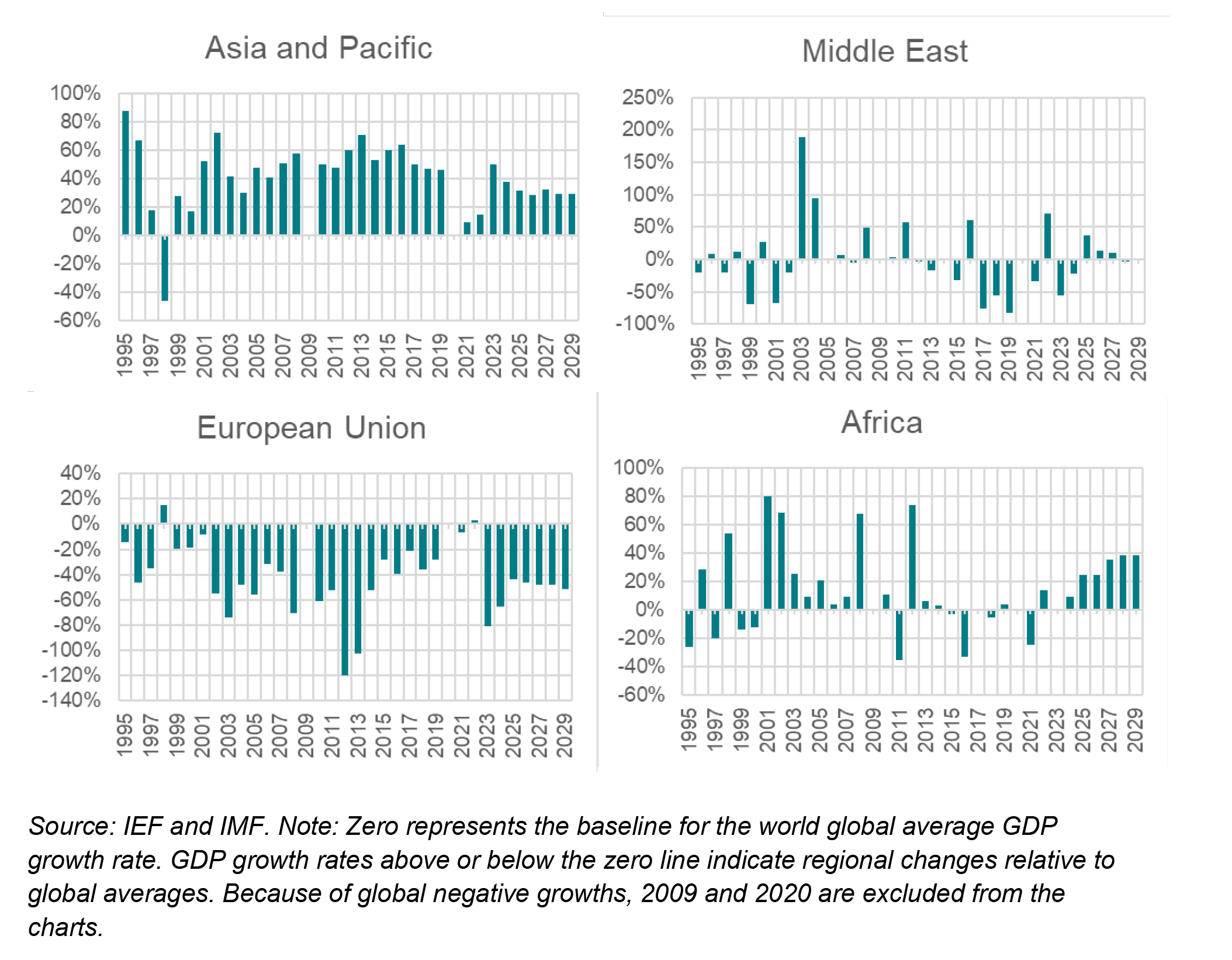 Download Figure 4
Download Figure 4 Figure 5 - IEA OPEC and US EIA projections of Oil Demand in the Transport Sector
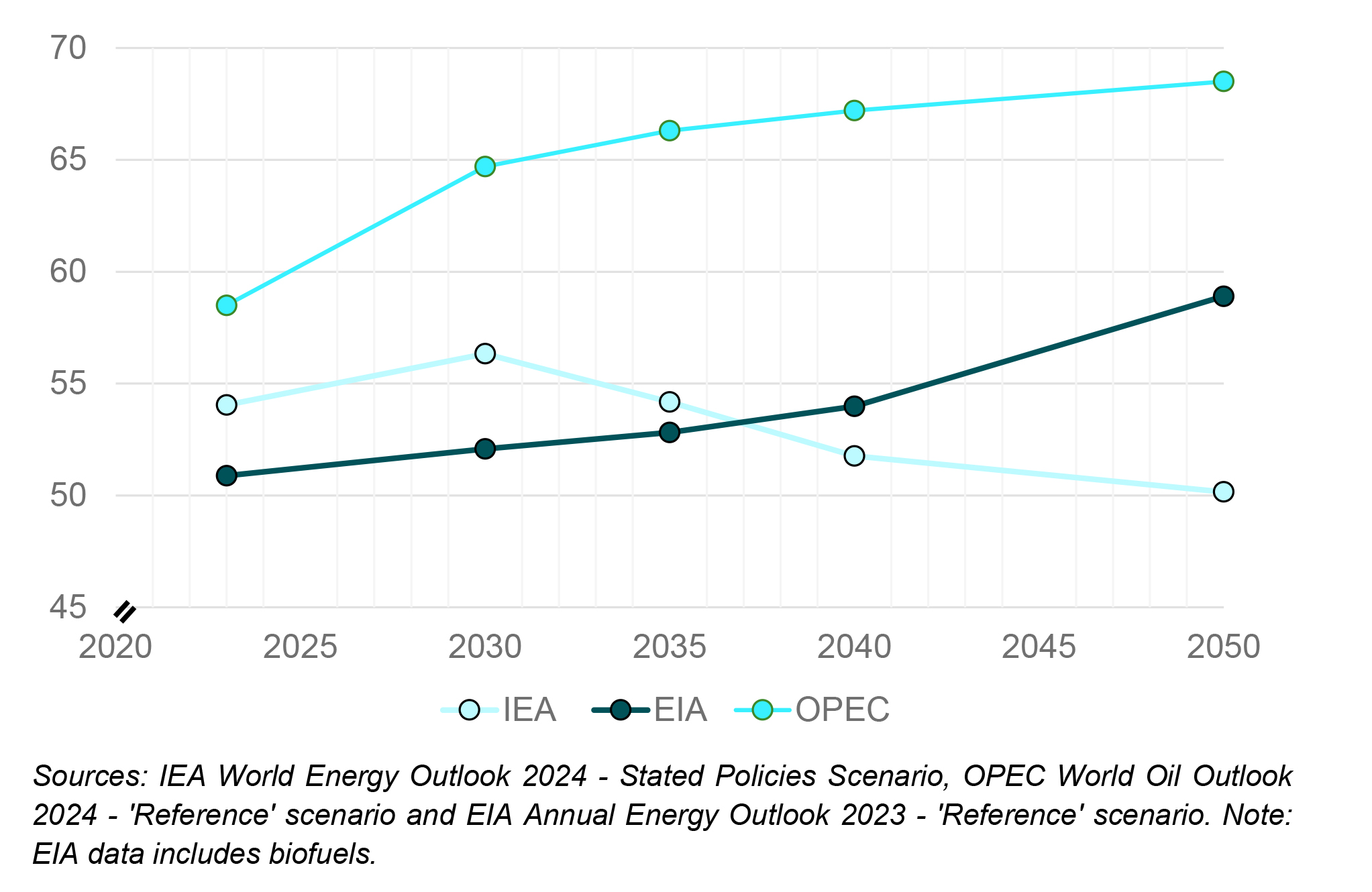 Download Figure 5
Download Figure 5 Figure 9 - Total World Greenhouse Emissions from Transportation Sector, by Mode (Mt)
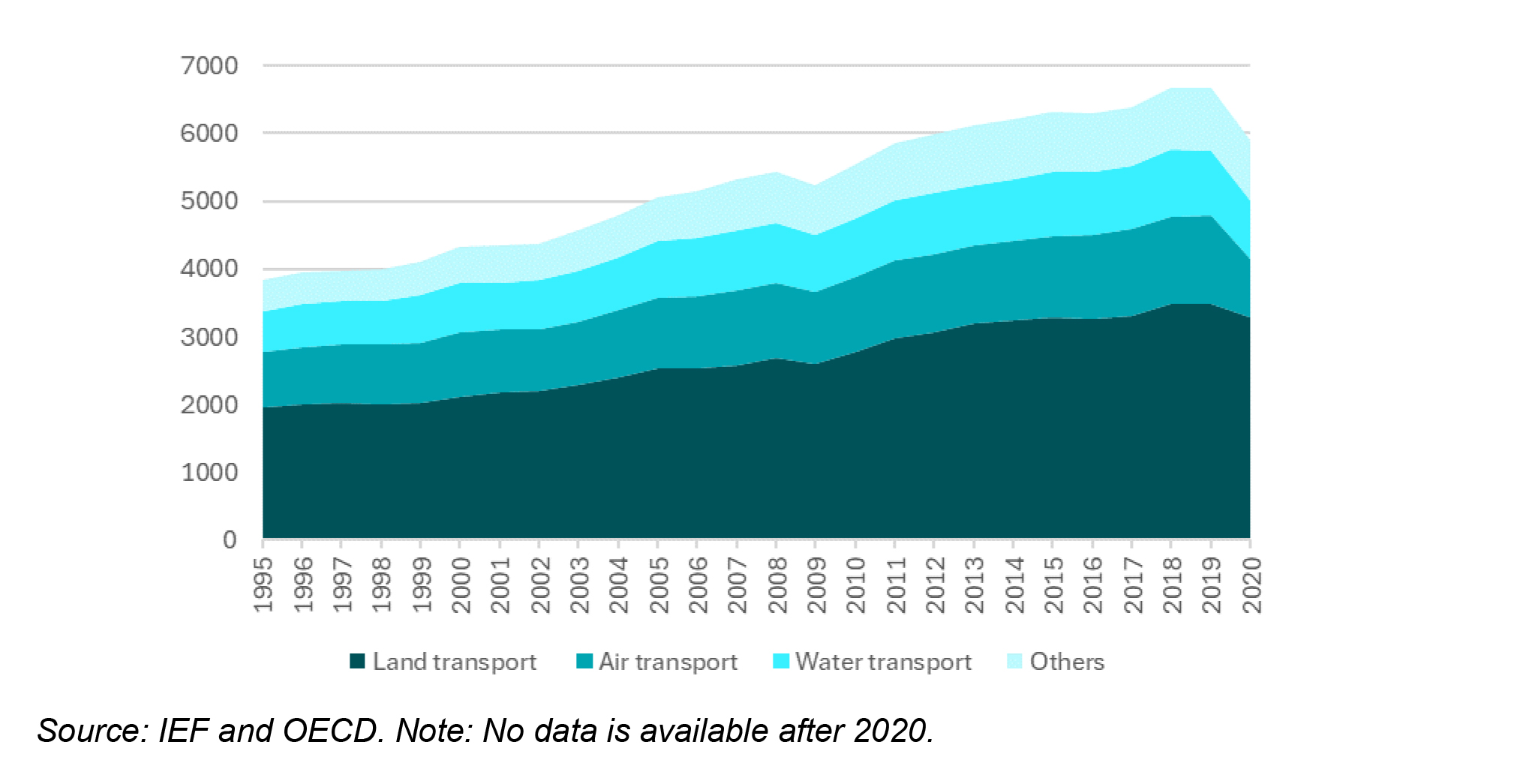 Download Figure 9
Download Figure 9 Figure 12 - Jet fuel demand from the major consumers presented in JODI
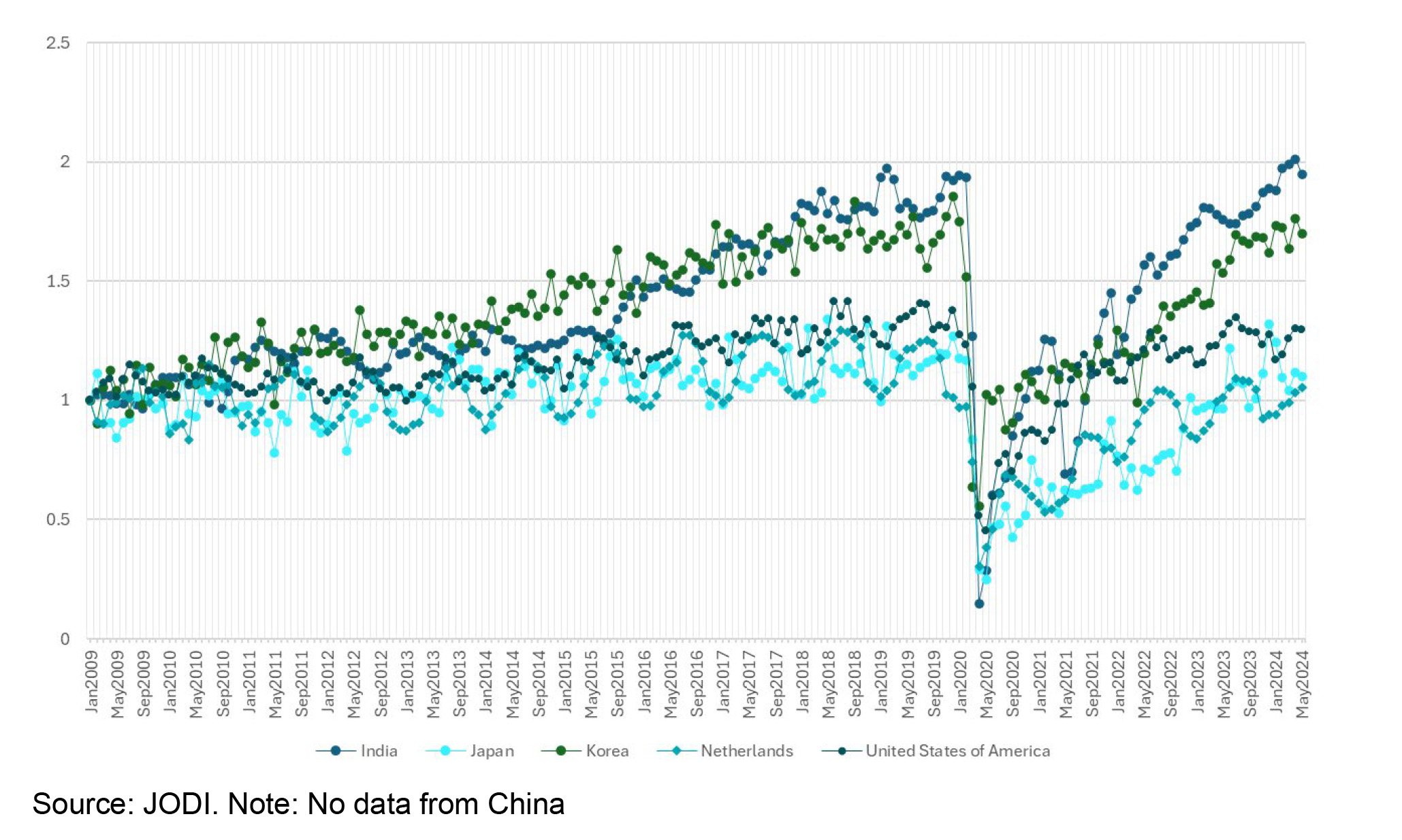 Download Figure 12
Download Figure 12 About the International Energy Forum
The International Energy Forum (IEF) is the world's largest international organization of energy ministers from 72 countries and includes both producing and consuming nations. The IEF has a broad mandate to examine all energy issues, including oil and gas, clean and renewable energy, sustainability, energy transitions and new technologies, data transparency, and energy access. Through the Forum and its associated events, officials, industry executives, and other experts engage in a dialogue of increasing importance to global energy security and sustainability.


